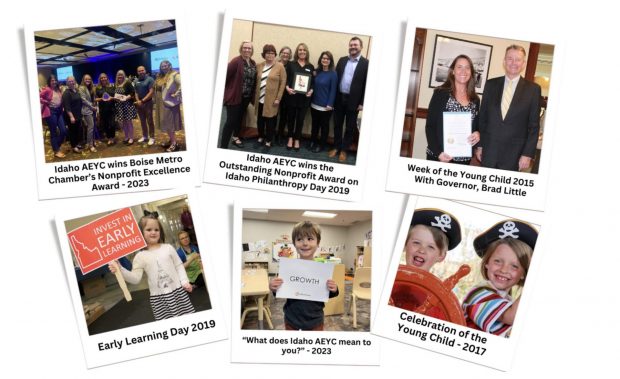Updated at 9:15 a.m. on March 12 with information about the trustee selection process for Oppenheimer’s Boise School Board vacancy.
It can be disheartening to advocate for early childhood education in Idaho. Just ask Beth Oppenheimer.
“Some days, you fall on the ground, but you get back up,” the former longtime executive director for the Idaho Association for the Education of Young Children said in a recent interview with EdNews.
For Oppenheimer, it’s a literal example, hearkening back to the March 2021 legislation session, when politicians rejected $18 million in federal funding to support early childhood education across the state over three years.
“To turn away $18 million of our taxpayer money, your taxpayer money, everybody’s taxpayer money was just … unheard of,” she said.
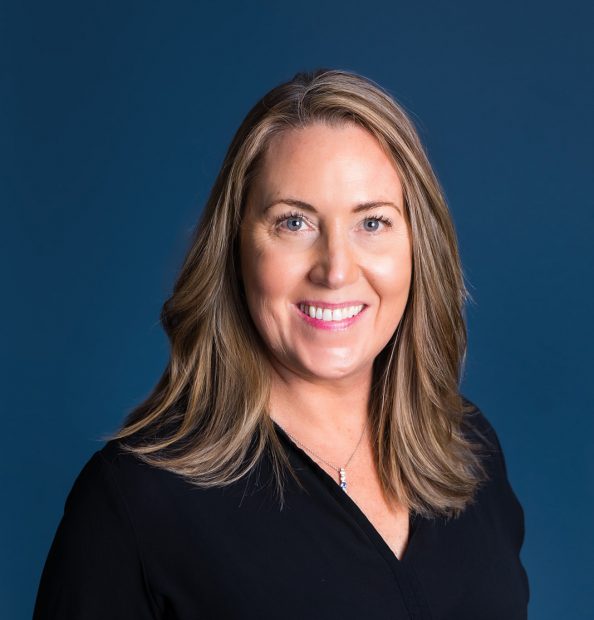
When the unthinkable happened, she fell to the floor sobbing. But she didn’t give up: “We’re going to figure this out,” she told EdNews at the time.
And she did, innovating a new approach centering local rather than statewide initiatives. Today, the AEYC’s early learning collaboratives have grown to include 25 communities, each finding unique ways to offer affordable, quality early education opportunities.
A Boise School District trustee, Oppenheimer was also a leading voice on pre-K-12 issues at one of the state’s largest districts.
As Kevin Bailey, AEYC’s incoming board president, put it, she’s a champion of children from “cradle to career.”
The Boise School Board has accepted Oppenheimer’s resignation and established a timeline for selecting a replacement:
—March 12: Applications are being accepted.
—March 25: Applications due.
—March 26: Special board meeting to consider applications and appointment.
—April 8: The new trustee will be sworn in at a regular board meeting.
—Sept. 3: The appointee’s seat will be up for election; the appointee may seek election to the board. The candidate filing period opens June 24.
Monday marks her last day in Idaho education. Oppenheimer is set to officially resign from the Boise School Board at its regular meeting Monday night, and Friday was her last day at AEYC’s helm.
Her next stop: XQ Institute in Washington, D.C., where she’ll serve as the head of policy and research. The organization, founded by Laurene Powell Jobs, aims to “(rethink) the high school experience so every student graduates ready to succeed in college, career, and real life.”
Her experiences in the Gem State have set her up for this: “If you can navigate education here in Idaho, you can do it anywhere,” she said.
Now it’ll be up to others to “keep the fire burning”
Idaho’s progress on early learning has in some ways been a paradigm shift. When Oppenheimer first arrived on the scene as AEYC’s executive director in 2010, pre-K education was a taboo subject.
“You couldn’t even talk about early childhood. You definitely couldn’t say ‘preschool,’” she said.
Oppenheimer remembers asking former Governor Butch Otter about investing in early childhood. “We have to fix K-12 first,” he told her.
Today, state leaders, legislators and others are starting to get behind a message AEYC has long touted: that high quality early education “has a lifelong positive effect on children,” and contributes to improved kindergarten readiness and early literacy.
In 2022, Gov. Brad Little pushed for a $47 million investment into early literacy, which some districts used to fund full-day kindergarten.
“Our investments in education later will have more impact if we can give students a strong start,” he said at the time. “It is not only our constitutional obligation but our moral obligation as well.”
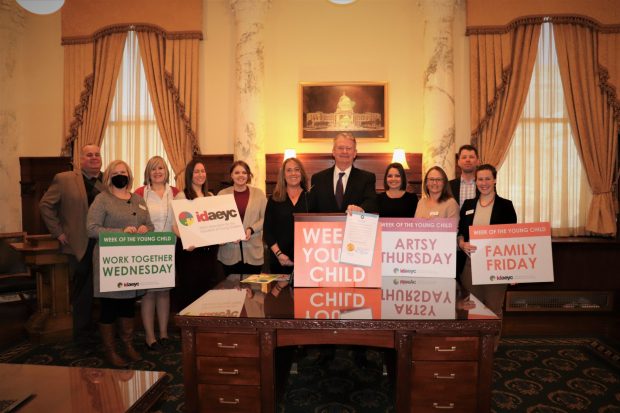
“I’m really proud that we have shifted the conversation,” Oppenheimer said. “And that took a long time.”
It also took teamwork.
Rod Gramer, the president and CEO of Idaho Business for Education, said the number one policy issue for business leaders is early education, “by a huge margin.” Early education facilitates a more educated workforce, and boosts recruitment efforts because prospective employees often value states with a robust, quality education system that begins early.
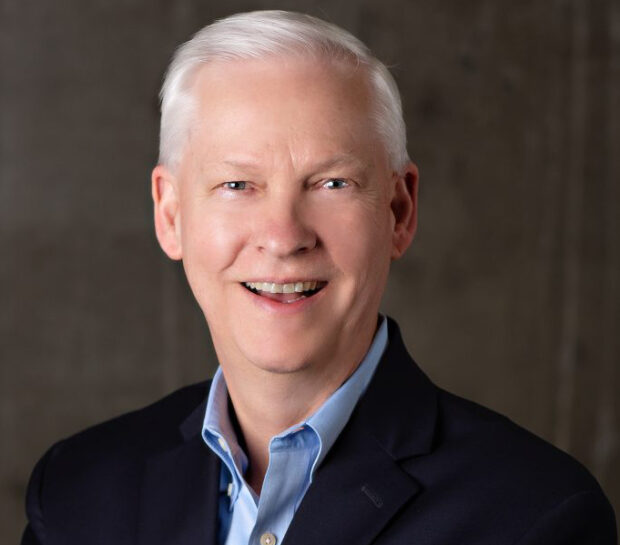
“Our business leaders see that it’s better to prepare kids than to repair kids for the future,” he said.
As momentum for pre-K education increased, Gramer and Oppenheimer started working toward broadening opportunities for young kids based on an early learning collaborative model in Mississippi. Oppenheimer applied for a federal grant to fund the concept — the $18 million that was eventually rejected.
But what was a dark day, a defining and unforgettable moment in a long career, became an opportunity.
Oppenheimer shifted her strategy from a top-down, politician-led approach, to one led by locals — superintendents, mayors, teachers, parents and others who wanted to see early care and early education in their communities.
Today it’s grown into a network of 25 communities — from American Falls to Marsing to Kendrick-Juliaetta — each building partnerships to offer “affordable, comprehensive early learning opportunities that would otherwise be unavailable to many families.”
“We’ve made tremendous movement and progress across the state in that there are more children that are engaged in early learning activities than ever before, and that’s just continuing to grow,” Oppenheimer said.
“What she’s done is really laying the groundwork for the future,” Gramer said. “Her legacy, in my view, is going to be the work she’s done outside of the legislature to make sure we keep the fire burning for early education.”
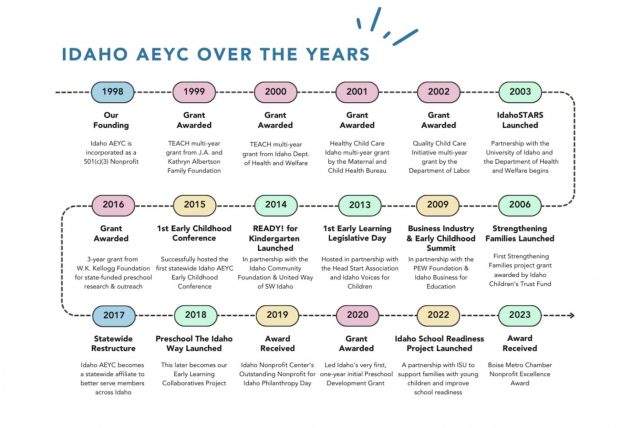
Progress has been slow, as obstacles persist
Although attitudes toward early education seem to be shifting, there remain setbacks — like Attorney General Raúl Labrador’s recent investigations into AEYC, other nonprofits, and some school districts, regarding whether they inappropriately used COVID-19 relief monies for children under 5 — a case Oppenheimer recently called “mind-boggling.”
And a proposal for a new state office of early childhood, which would coordinate public and private services for children 5 and younger, advanced out of the House Education Committee last month, but seems to have stalled out; it likely won’t be heard on the House Floor this session.
That came after Ron Nate, president of the Idaho Freedom Foundation, said the constitution does not call for the Legislature to support early childhood education and doing so would “dip (us) into the ‘Communist Manifesto,’”
Rep. Dale Hawkins, R-Fernwood agreed that such services are not the state’s responsibility.
Idaho legislators have long derailed bills that would fund early childhood education.
“It’s been frustrating for all of us who so strongly believe in early education that we just can’t get any movement at the Legislature on that issue,” Gramer said.
Idaho is one of just a handful of states that does not invest in preschool, which Oppenheimer partly attributes to legislators being “out of touch” with what their communities want and need. “My hope is that eventually legislators will grasp onto what is happening in their backyards and how it’s really impacting their own constituents.”
She was able to ‘build strong coalitions’ against the odds as a trustee
On top of her work with AEYC, Oppenheimer has served as a Boise Schools trustee since 2016. She’s made controversial decisions through the pandemic era, responded to upticks in mental health issues, and contended with declining enrollment and staff reductions.
She’s also played a key role in the expansion of the district’s pre-K program and full-day kindergarten, and spearheaded a student advisory board to foreground student voices, later serving alongside Shiva Rhajbandari, who made history by joining the board when he was a senior at Boise High.
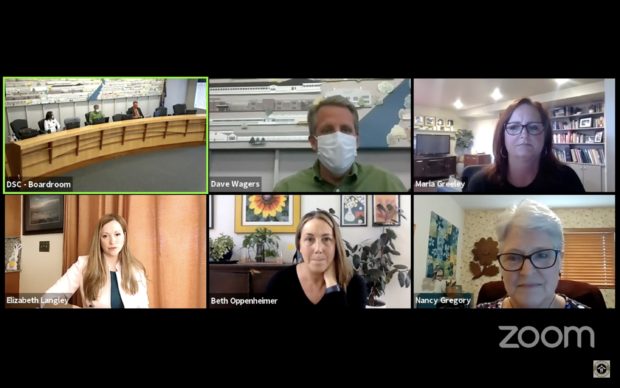
“(Oppenheimer’s) ability to build strong coalitions between people and organizations that don’t share a whole lot in common is remarkable,” Coby Dennis, superintendent of the Boise School District, said. “Her statewide and national expertise, as well as understanding what people can agree on, was a huge benefit to our District whether we were discussing how best to deliver on K-3 literacy or provide access to full-day kindergarten to every child in Boise.”
Oppenheimer has seen firsthand the seismic shifts as school boards have garnered unprecedented levels of attention and interest, translating to unusually high numbers of contested trustee races.
The involvement is great, she said, as long as those interested are doing it to support rather than undercut education. And they should know there’s a lot to learn when they step into the role of overseeing a school district.
A new chapter for Oppenheimer: reimagining high schools
Supporters from around the state hailed Oppenheimer as a leading changemaker in Idaho education.
Losing her will be a “real blow,” Gramer said. “We need to pick up the baton and make sure we keep this issue going.”
“(Oppenheimer) has had an unwavering commitment to the young children of Idaho,” said Jackie Yarbrough, the senior program officer for the Blue Cross of Idaho Foundation for Health, which has partnered with AEYC for more than a decade. “Idaho is in a better place and has more opportunities to advance early education because of the groundbreaking work (she) has done.”
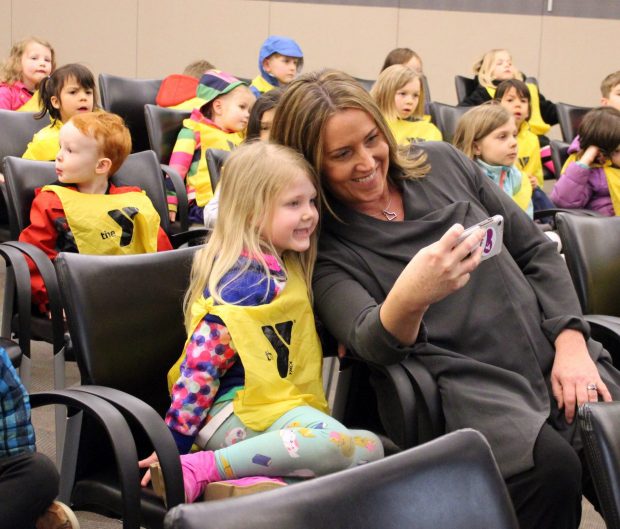
Boise trustees plan to announce next steps for a new trustee at their regular meeting Monday night. And the AEYC board is working with a national search firm to find a replacement, a process that will likely take a few months.
“(Oppenheimer’s) legacy is really unmatched,” President-Elect Kevin Bailey said. “She’s the state’s foremost leader and authority on early childhood and child care opportunities … it’s going to be tough to find a replacement.”
For her part, Oppenheimer said that her goal has always been simple: to help kids and families.
That hasn’t always been easy in Idaho, but Oppenheimer said she’s not giving up by moving — she plans to keep fighting for education, just on a bigger stage.
In her new role, she’ll focus on rethinking the high school experience, with an emphasis on graduate profiles and project-based learning.
And her work may still impact the Gem State. Idaho is already one of three pilot states exploring XQ Institute’s math badging program, which aims to “energize high school mathematics and engage more students in rigorous, relevant, and diverse learning opportunities in junior- and senior-level courses.”
“I’m not running away,” Oppenheimer said. “I’m running to a new opportunity, a new challenge, and a new focus.”
Further reading: Oppenheimer to step down from AEYC and Boise School Board; Beth Oppenheimer’s passion keeps her going: ‘We’re building a system’
